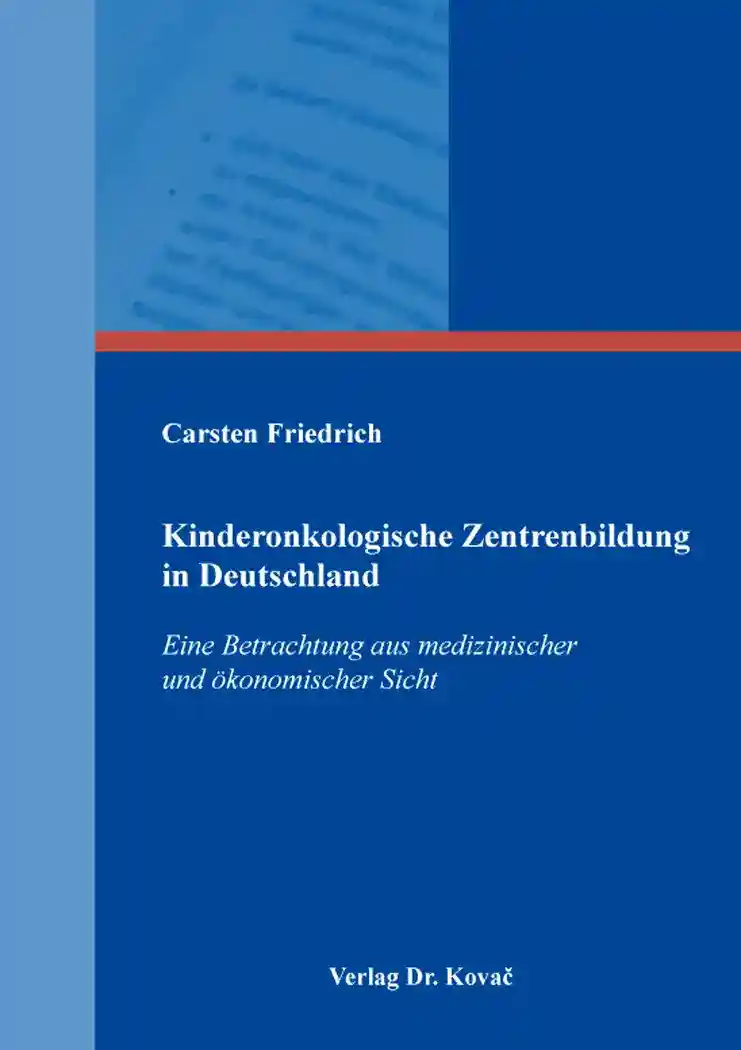Carsten FriedrichKinderonkologische Zentrenbildung in Deutschland
Eine Betrachtung aus medizinischer und ökonomischer Sicht
Gesundheitsmanagement und Medizinökonomie, volume 59
Hamburg 2022, 100 pages
ISBN 978-3-339-12770-9 (print)
ISBN 978-3-339-12771-6 (eBook)
About this book deutschenglish
Childhood cancers are rare and divide into smaller and smaller treatment groups. Hence, the existence of minor treatment centers is being questioned.
How useful is a further regionalization of pediatric oncology care? What are the advantages and disadvantages of small versus large centers for sick children / parents, providers, clinics or doctors?
In this book, answers to the questions are sought through an extensive literature search, longitudinal investigation of the number of centers as well as their geographical distribution in Germany and a stakeholder analysis.
In Germany, over the past few decades, structures have been created with trial centers, therapy optimization trials, reference centers and the German Childhood Cancer Registry that ensure a uniform quality of treatment. These structures are changing because there are fewer therapy optimization trials and instead structural criteria of the Federal Joint Committee (Gemeinsamer Bundesausschuss) for each center or the certification system by the German Cancer Society. The number of centers has decreased in recent years and is unevenly distributed between the new and old federal states. Further centralization of care is advocated differently by stakeholders. Larger and smaller centers have opposing interests. Theoretically, increasing patient volumes in pediatric oncology centers could be associated with a positive effect on treatment quality and cost efficiency. On the other hand, further centralization would likely increase indirect costs and psychosocial burdens for patients and families. By considering quality factors in the future in hospital planning and in the DRG case-based lump sum (Fallpauschalen) system, structural changes towards further centralization could be actively induced. However, this could also happen uncontrolled due to a persistent staff shortage.
The content of this book can help decision-makers and interested parties to form their own opinion. Open questions provide a source for future research projects.
